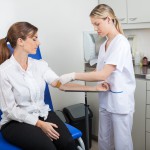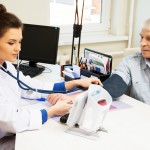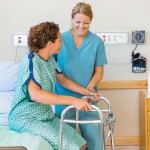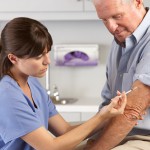Study curriculum | Accreditation [PDF]
Study propane
As stated in the WHO and EU recommendations and standards, professional highly educated nurses are needed at all levels of health care system (Education Strategy for Nurses and Midwives / WHO, 2003). The International Council of Nursing (ICN / 1987; 1992) and the European Commission’s Advisory Committee on Nursing (1994, European Directives 89/48 CEE and 92/51 / EEC) have recommended for nurses to be educated in specific fields within which they will be able to apply their theoretical and practical knowledge aimed at providing as high as possible quality of nursing care in the course of satisfying basic human needs. In accordance to that the Croatian system of health care does not only need nurses with basic knowledge and skills of general nursing care, but an ever larger number of highly educated nurses with knowledge and skills in specific fields of health and nursing care. In the 21st century, the age of gene therapy, modern technology, complex needs provided for within health and social care systems, increased expectations of medical services users and increased mobility of the population, the knowledge and skills of a nurse need to be as extensive as possible.
An important field within health care that requires specific professional knowledge is the field of clinical nursing. The extended life expectancy significantly affects the increase in the number of chronic diseases among elderly people, while the economic and social conditions lead to greater incidence of various diseases in young and middle-aged population; hence it is important to enhance the educational level of health professionals (WHO, 1998).
Specialist Professional Graduate program in nursing is aimed at the training of nursing specialists in different fields of health and nursing care and clinical medical branches, who would have the skills needed in providing overall care of patients with specific focus on clinical knowledge.
The first academic year is the expansion of knowledge in the fields of specific nursing care and clinical medical fields. During the second academic year the specialisation study program is aimed at training in different fields of nursing and health care, for example: nursing care of hematological and oncologic patients, nursing care in diagnostic procedures, control of hospital infections, nursing care of gastroeneterologic patients, neurologic patients. Each field of nursing care is dealt with as part of a separate module.
In selecting the modules, the indicators of the most common illnesses and causes of death in the Republic of Croatia and the needs in health have been taken into consideration. Modules have also been chosen in agreement with nursing associations (Croatian Nursing Association in Neurology, Croatian Nursing Association in Gastroenterology and Endoscopy, Croatian Association of Nurses in Cardiology), and in the fields where they recognized the need for nurses with specialist education ( diagnostics, intrahospital infections).
The stated facts represent one of the reasons for the design of specialist graduate professional study of Clinical nursing.
General information
Teaching institution
University of Applied Health Sciences in Zagreb
Name of the study
Specialist Graduate Professional Study in Clinical Nursing
Duration
Two (2) academic years (4 semesters)
Admission conditions
Fully completed 3-year professional study program of nursing; or two-year professional study of nursing and a four-year comparable study program; or two-year professional study of nursing and bridging examinations. State Board Exam.
Job skills and competences
Upon completion of curricular requirements the graduate students will be able to perform nursing practice as follows:
- They will acquire specific knowledge in the following: modern organization of health care services; different approaches in clinical practice at hospital oncologic, hematological and gastroenterologic wards; diagnostics; prevention and control of hospital infections
- They will acquire specific knowledge of different clinical fields
- They will know how to define the patients’ needs and assess the priorities in caring for them
- They will know how to implement specific interventions within the competences of a nurse
- They will know how to evaluate the applied interventions and how to monitor general indicators of success of therapy and nursing care
- They will acquire specific practical and theoretical knowledge in the field of nursing care of patients suffering from oncologic and hematologic conditions
- They will acquire specific knowledge about pathophysiological background of hematologic and oncologic conditions as a basis in the assessment of overall health care needs
- They will acquire specific knowledge in the implementation of diagnostic and therapeutic procedures for patients suffering from hematologic and oncologic conditions
- They will acquire specific knowledge about algorithms of cytostatic therapy application
- They will acquire specific knowledge about side-effects of cytostatic therapy and how to relieve them
- They will acquire specific knowledge about the organization and implementation of protective isolation
- They will acquire specific knowledge about the organization and implementation of nursing care of patients before, during and after bone marrow transplantation
- They will acquire specific knowledge about therapeutic algorithms for pain control
- They will know how to integrate specific knowledge in the implementation of care for patients with terminal conditions respecting the principles of palliative care
- They will acquire specific knowledge about the organization and implementation of palliative care
- They will know the basic principles of safe care for patients while preparing and implementing diagnostic procedures
- They will know how to prevent and recognize complications during and after diagnostic procedures
- They will know how to maintain diagnostic and other equipment
- They will be able to apply relevant knowledge about diagnostic and therapeutic procedures
- They will know about indications and contraindications for diagnostic procedures
- They will be able to assist during diagnostic endoscopic procedures
- They will be able to assist during invasive and non-invasive diagnostic procedures
- They will acquire knowledge and skill to perform non-invasive cardiologic and lung diagnostic procedures
- They will be able to independently perform ultrasonic heart diagnosis
- They will know how to handle samples for microbiological, cytological and pathohistological tests
- They will acquire knowledge about diagnostic and other equipment
- They will now how to apply the principles of asepsis and sterilization during diagnostic procedures
- They will know how to prevent hospital infections with specific reference to internal, pediatric and surgical specialities, obstetrics and intensive care units
- They will gain knowledge about the properties, types and use of disinfectants and antiseptics
- They will know about criteria for hospital infection diagnosis in patients
- They will be able to recognize critical high risk areas for hospital infections
- They will know how to define the degree of risk for infection transmission
- They will be able to design protocols for prevention of infections for all types of hospital diagnostic and therapeutic procedures based on international and national guidelines
- . They will participate in designing the monitoring system for specific hospital infections and will be able to manage its implementation
- They will acquire specific theoretic and practical knowledge in the field of nursing and health care of gastroenterologic patients
- They will acquire relevant knowledge about participation in the carrying out of diagnostic and therapeutic procedures for gastroenterologic patients
- They will acquire relevant knowledge about parenteral and enteral nutrition
- They will acquire relevant knowledge about standards in the application of endoscopic procedures
- They will acquire relevant knowledge about diagnostic and therapeutic endoscopic procedures, including the purpose, indications, contraindications, application, risks and complications
- They will acquire relevant knowledge about structure, function, application and functioning errors of endoscopic instruments
- They will acquire relevant knowledge about principles of decontamination of endoscopic instruments
- They will acquire relevant knowledge about safety principles and health preservation of patients and health workers in endoscopic procedures
- They will acquire specific knowledge in modern organisation of neurologic services; basis for different approaches in neurology of mental disorders accompanying neurologic conditions; epidemiology of neurologic diseases and factors influencing their occurrence; prevention and control of disorders and neurologic conditions; social and legal status of neurologic patients and their rights
- They will acquire specific knowledge in clinical fields of neurology, neurosurgery, neuro-pediatrics and neuro-rehabilitation
- They will acquire specific knowledge in theory and practice in the field of nursing and health care of neurologic patients
- They will acquire specific knowledge in definition of needs of neurologic patients and assessment of priorities for their nursing care
- They will acquire specific knowledge in implementation of specific interventions within the competences of a nurse
- They will acquire specific knowledge in assessment of success of the applied interventions; follow-up of general indicators of treatment and nursing care successfulness
- They will acquire specific knowledge in communication with neurologic patient and his family members
- They will acquire specific knowledge in independent carrying out of therapeutic methods within the competences
- They will acquire specific knowledge in communication with patients’ associations, social welfare centers, public health nurses
- They will acquire specific knowledge in implementation of measures for health promotion in a community
- They will acquire specific knowledge in ethical and professional standards
- They will acquire specific knowledge in communication with all other patients and their family members
- They will acquire specific knowledge in efficient participation in complex multi-professional organizational contexts
- They will acquire specific knowledge in development of critical thinking
- They will acquire specific knowledge in promotion of team work and interdisciplinary team approach
- They will acquire specific knowledge in full use of information technology
- They will acquire specific knowledge in designing strategies for the development of nursing profession
Other information
Program Objectives
- Promotion of professional status of nurses:
• Extend the students’ knowledge and skills in the field of nursing care of patients (including the patient’s family and wider social community)
• Develop students’ analytical and critical thinking in order for them to be able to provide the highest quality nursing care (promotion of evidence based practice)
• Enable the students to participate in team work and to collaborate with all other specialists involved in the treatment and care of patients
• Ensure the highest level of education and training, integrated theoretical and practical knowledge, in order to be able to professionally develop through various forms of lifelong learning. - Implementation of general principles of European Network of Nursing Organizations (ENNO) for harmonization of education and training in order to enable free mobility of professionals in EU (the Roman criteria).
- Promotion of harmonized high standards in clinical nursing in EU.
Venues for study program implementation
Theoretical classes are held at University of Applied Health Sciences in Zagreb, Mlinarska 38, in clinics and institutes of Zagreb School of Medicine and in general and specialized hospitals.
Clinical practice is held at:
- Clinical hospital „Sisters of Mercy“
- Clinical hospital centre“Zagreb“
- Clinical hospital “Dubrava“
- Clinical hospital “Merkur“
- Hospital for pulmonary diseases „Jordanovac“
- Polyclinic for cardiovascular disease prevention
Evaluation of the study program implementation and efficiency
Successful implementation of the program is evaluated by ananonimous questionare by which students evaluate the usefulness of the study content, the preparation of the teachers for lectures, clarity of instruction and the amount of new content. Study plan and program and its implementation are compared, as well as the number of students present at the lectures and practical classes: at the end of an academic year there is an evaluation of students’ grades and the level of success at passing their exams.
Professional competences of graduate students in Clinical nursing
Graduate students will be able to implement nursing care because during the course of their study they will:
- acquire specific knowledge in the following: modern organization of health care services; different approaches in clinical practice at hospital oncologic, haematological and gastroenterologic wards; diagnostics; prevention and control of hospital infections.
- acquire specific knowledge of different clinical fields.
- acquire specific practical and theoretical knowledge in nursing care.
- know how to define the patients’ needs and assess the priorities in caring for them.
- know how to implement specific interventions within the competences of a nurse.
- know how to evaluate the applied interventions and how to monitor general indicators of success of therapy and nursing care.
- acquire specific practical and theoretical knowledge in the field of nursing care of patients suffering from oncologic and hematologic conditions.
- acquire specific knowledge about pathophysiological background of hematologic and oncologic conditions as a basis in the assessment of overall health care needs.
- acquire specific knowledge in the implementation of diagnostic and therapeutic procedures for patients suffering from hematologic and oncologic conditions.
- acquire specific knowledge about algorithms of cytostatic therapy application.
acquire specific knowledge about side-effects of cytostatic therapy and how to relieve them. - acquire specific knowledge about the organization and implementation of protective isolation.
- acquire specific knowledge about the organization and implementation of nursing care of patients before, during and after bone marrow transplantation.
- acquire specific knowledge about therapeutic algorithms for pain control.
- know how to integrate specific knowledge in the implementation of care for patients with terminal conditions respecting the principles of palliative care.
- acquire specific knowledge about the organization and implementation of palliative care.
- know the basic principles of safe care for patients while preparing and implementing diagnostic procedures.
- know how to prevent and recognize complications during and after diagnostic procedures.
- know how to maintain diagnostic and other equipment.
- be able to apply relevant knowledge about diagnostic and therapeutic procedures.
- know about indications and contraindications for diagnostic procedures.
- be able to assist during diagnostic endoscopic procedures.
- be able to assist during invasive and non-invasive diagnostic procedures.
- acquire knowledge and skill to perform non-invasive cardiologic and lung diagnostic procedures.
- be able to independently perform ultrasonic heart diagnosis.
- know how to handle samples for microbiological, cytological and pathohistological tests.
- acquire knowledge about diagnostic and other equipment.
- know how to apply the principles of asepsis and sterilization during diagnostic procedures.
- know how to prevent hospital infections with specific reference to internal, pediatric and surgical specialities, obstetrics and intensive care units.
- gain knowledge about the properties, types and use of disinfectants and antiseptics.
- know about criteria for hospital infection diagnosis in patients.
- be able to recognize critical high risk areas for hospital infections.
- know how to define the degree of risk for infection transmission.
- be able to design protocols for prevention of infections for all types of hospital diagnostic and therapeutic procedures based on international and national guidelines.
- participate in designing the monitoring system for specific hospital infections and will be able to manage its implementation.
- acquire specific theoretic and practical knowledge in the field of nursing and health care of gastroenterologic patients.
- acquire relevant knowledge about the following:
• participation in the carrying out of diagnostic and therapeutic procedures for gastroenterologic patients;
• parenteral and enteral nutrition;
• standards in the application of endoscopic procedures;
• diagnostic and therapeutic endoscopic procedures, including the purpose, indications, contraindications, application, risks and complications;
• structure, function, application and functioning errors of endoscopic instruments;
• principles of decontamination of endoscopic instruments.
• safety principles and health preservation of patients and health workers in endoscopic procedures. - acquire specific knowledge in modern organisation of neurologic services; basis for different approaches in neurology of mental disorders accompanying neurologic conditions; epidemiology of neurologic diseases and factors influencing their occurrence; prevention and control of disorders and neurologic conditions; social and legal status of neurologic patients and their rights
- acquire specific knowledge in the following:
• clinical fields of neurology, neurosurgery, neuro-pediatrics and neuro-rehabilitation,
• theory and practice in the field of nursing and health care of neurologic patients;
• definition of needs of neurologic patients and assessment of priorities for their nursing care;
• implementation of specific interventions within the competences of a nurse;
• assessment of success of the applied interventions; follow-up of general indicators of treatment and nursing care successfulness;
• communication with neurologic patient and his family members;
• independent carrying out of therapeutic methods within the competences;
• communication with patients’ associations, social welfare centers, public health nurses;
• implementation of measures for health promotion in a community;
• ethical and professional standards;
• communication with all other patients and their family members;
• efficient participation in complex multi-professional organizational contexts;
• development of critical thinking;
• promotion of team work and interdisciplinary team approach;
• full use of information technology;
• designing strategies for the development of nursing profession.
Competences of graduate students
Professional competences of graduate students in Clinical nursing include the following:
- Monitoring and management of quantity and quality of nursing care
- Assessment, collection, analysis, synthesis and interpretation of the data.
- Planning of health care according to the standards of practice, process standards and aim standards
- Providing nursing care
- Providing basic and specialized nursing care
- Implementation of nursing care interventions in accordance with the nursing care plan, diagnostic and therapeutic algorithms
- Planning and implementation of nursing care of hematology and oncology patients according to the standards of practice
- Administration of chemotherapy and supportive therapy according to therapeutic algorithms
- Interpretation of diagnostic parameters
- Prevention and reducing of side-effects of chemotherapy
- Implementation of palliative care
- Critical analysis, synthesis and evolution of new and complex information relevant to clinical practice
- Developing innovative approaches to nursing practice that is patient or user oriented-oriented
- The application of ethical principles and the principles of patient safety
- Thorough understanding of diagnostic procedures including indications, implementation, risks and complications
- Distinguishing normal from pathological structures and functions of examined organs
- Assessment, problem identification, planning and implementation of nursing care to patients who underwent diagnostic procedures
- Preparing patients for diagnostic procedures, implementation of health care before, during and after the procedure
- Assist in endoscopic diagnostic procedures, non-invasive and invasive diagnostic cardiology, diagnostic radiology , nuclear diagnostics, ultrasound, electrophysiological diagnostics.
- Independently perform heart ultrasound
- Determining the potential and/or actual complications associated with diagnostic procedures and adequate reaction
- Informing and educating patients about diagnostic procedures
- Preparation and handling of instruments, equipment, including verification of operation and troubleshooting during operation
- Maintenance and storage of diagnostic equipment according to guidelines, regulations, law and the manufacturer’s instructions
- Implementation of protection for healthcare professionals, patients and the environment
- Implementation of documentation
- Adherence to quality standards in conducting diagnostic procedures
- Prevention of hospital infections with emphasis on different activities (internist, surgical, pediatric , obstetrics and intensive care units )
- Creating a protocol for infection prevention for all types of diagnostic and therapeutic procedures in the hospital
- Application of protocols, control measures
- Knowledge of criteria for the diagnosis of hospital infections
- Knowledge of the characteristics, types and application of disinfectants and antiseptics
- Determining the level of risk for the transmission of hospital infections
- Monitoring and control of medical waste
- Infection control in the environment and proposing measures to control the sources of infection
- Implementation of control (“audit”)of the implementation of measures of prevention of hospital infections in different hospital wards
- Coordinating infection control activities with other activities in patient safety care program
- Health promotion in health institutions and in the community
- Participating in the quality assurance process
- Initiating and managing change in practice
- Planning and implementation of nursing care of gastroenterology patients according to the standards of practice
- Implementation of enteral and parenteral nutrition according to the guidelines
- Thorough understanding of diagnostic procedures including indications, implementation, risks and complications
- Distinguishing normal from pathological structures and functions of examined organs
- Assessment, problem identification, planning and implementation of health care for patients who underwent endoscopic diagnostic procedures
- Preparing patients for diagnostic procedures, implementation of nursing care before, during and after the procedure
- Assist in endoscopic diagnostic procedures
- Determining the potential and/or actual complications associated with diagnostic procedures and adequate reaction
- Informing and educating patients about diagnostic procedures
- Preparation and handling of instruments, equipment, including verification of operation and troubleshooting during operation
- Maintenance and storage of diagnostic equipment according to the guidelines, regulations, laws and the manufacturer’s instructions
- Implementation of protection for health care professionals, patients and the environment
- Implementation of documentation
- Adherence to quality standards in the implementation of health care and relevant diagnostic procedures for gastroenterology patients
- Assessment, problem identification, planning and implementation of health care for patients with neurological diseases
- Planning and implementation of health care for neurological patients according to the standards of practice
- Preventing and resolving complications
- Conducting education and rehabilitation procedures in the implementation of nursing care for neurological patients.
Graduate students will be completely capable of performing all the aforementioned activities.
Graduates have the possibility of continuing their studies at other compatible study programs in biomedical sciences.









